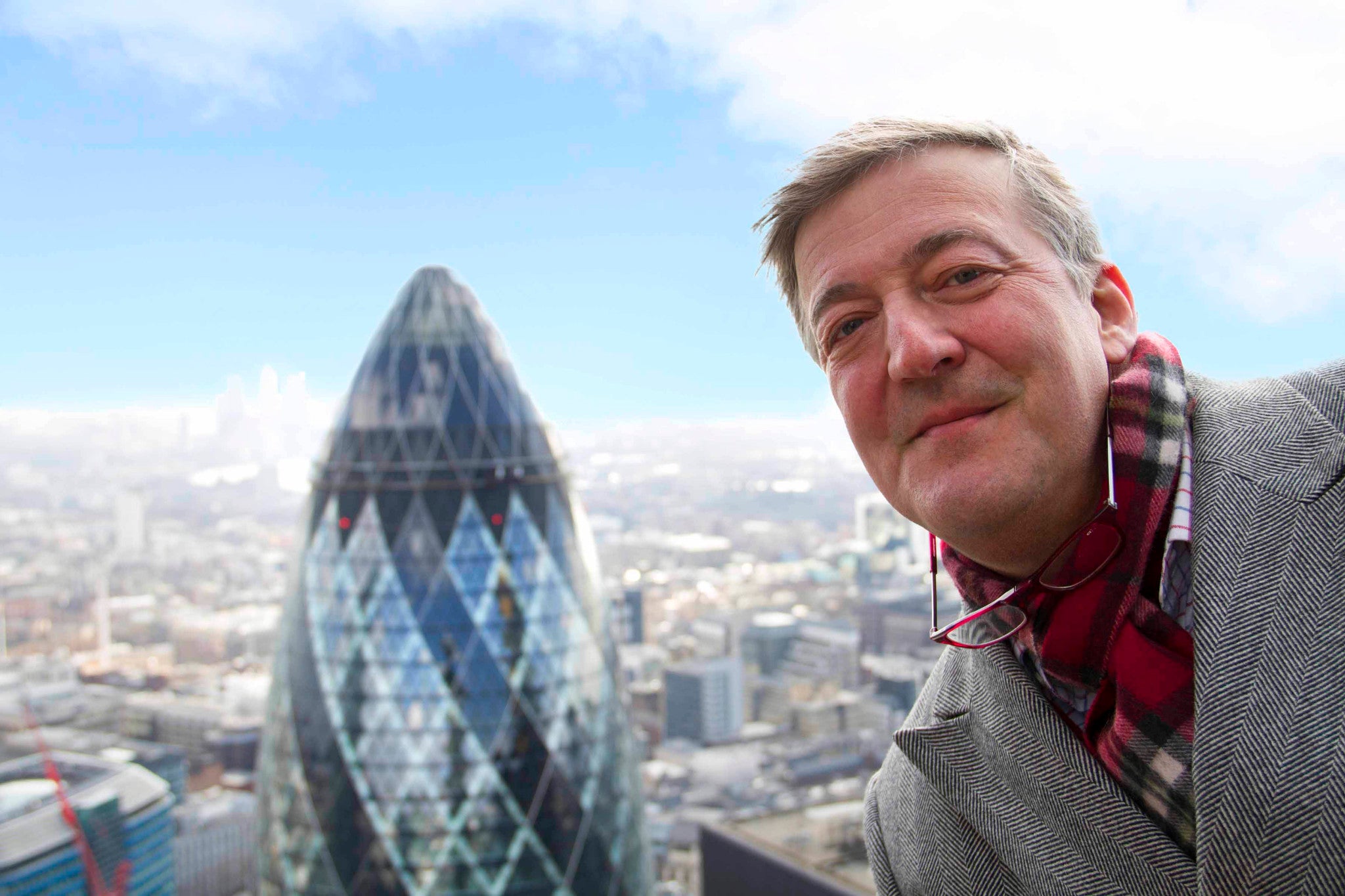TV review: Stephen Fry's Key to the City, ITV
Extreme OCD Camp, BBC3

Your support helps us to tell the story
From reproductive rights to climate change to Big Tech, The Independent is on the ground when the story is developing. Whether it's investigating the financials of Elon Musk's pro-Trump PAC or producing our latest documentary, 'The A Word', which shines a light on the American women fighting for reproductive rights, we know how important it is to parse out the facts from the messaging.
At such a critical moment in US history, we need reporters on the ground. Your donation allows us to keep sending journalists to speak to both sides of the story.
The Independent is trusted by Americans across the entire political spectrum. And unlike many other quality news outlets, we choose not to lock Americans out of our reporting and analysis with paywalls. We believe quality journalism should be available to everyone, paid for by those who can afford it.
Your support makes all the difference.If you were given a key to the City of London, what would you expect that entitled you to? Turns out, not very much. Unless you want to walk a sheep across Tower Bridge. In the one-off documentary Key to the City, Stephen Fry took a tour of the wealthiest square mile of the UK, and, having recently become a "freeman", attempted to discover exactly what this means. We joined Fry as he attended the inauguration ceremony of the Lord Mayor (not Boris), meeting various beadles and aldermen.
Apparently, they're all to do with the Common Council, but as Fry discovered, it was all a bit confusing. All we do need to know is that the City has its own powers, and even its own police force. Harking back to former glory days of power structures, the Mayor is also strangely Chief Magistrate, although it's a relief to know their judicial powers are not used. We saw a bunch of Dickensian-looking characters, who, as Fry pointed out, look "well fed" on roast beef, but we didn't find out exactly the point of them is. One fascinating part saw Fry wander down the "Dead Man's Walk" under the cells of the Old Bailey, where the condemned were led through doors that get narrower along the way, to their gruesome public execution. Public executions stopped in 1868, but up to 20,000 people would attend, and many by Tube. A surprising mix of modern and historical.
You couldn't help but share Fry's enthusiasm for seeing billions of pounds stacked up in £20 notes when he later visited the Bank of England, which led nicely into his meeting with a former Lord Mayor and former chairman of Lloyd's, Lord Levene. Fry asked Levene whether the trade is "contaminated to make the rich richer". Go, Stephen! He also pushed to find out if there are mechanisms in place to stop this happening again, forcing Levene to concede that "a number of people… did a lot of stupid and greedy things".
The mayoral party finally took a trip to the Apothecaries' Hall for a dinner, where Fry took part in a rose water ceremony, which, traditionally, was to counteract the gluttony of the aldermen by stimulating their intestines. More greediness, then.
Stephen Fry was of course as eloquent and charming as ever, which was lucky, because the material wasn't entertaining enough on its own. You were left with one very pertinent question: why is there a beekeeping operation with 30,000 bees making honey on the top of Mansion House?
There's always a concern with documentaries on mental illness that they'll exploit those taking part, so it's a natural relief when they manage to avoid a sensationalist route. In Extreme OCD Camp, the second episode of the two-part documentary saw six young Brits taken on a trek into the American wilderness for treatment. Following four days of intensive treatment, they were taught how to cope with the symptoms of their obsessive-compulsive disorder. These ranged from a pathological fear of germs, to a teenager plagued by thoughts that people she loves are going to be harmed unless she carries out tapping actions, or avoiding certain foods.
The dirty, cold and unknown territory of the wilderness was meant to trigger their OCD habits in order to tackle them head on, and they were told that it is understanding that their fears are irrational that separates OCD from psychosis. Although this is just a tiny nugget of the science, and more information about OCD would have certainly been appreciated.
A month on, and although none of the six were cured, seeing each so willing to take on the ultimate challenge of confronting something that engulfs their thoughts and determines their daily actions was undoubtedly inspiring. Meeting those who have the same fears had clearly helped them to understand their OCD, and, as the therapist pointed out, the necessity to try and tackle something that "robs them of their independence" is essential – it only shows just how consuming the condition can be.
Join our commenting forum
Join thought-provoking conversations, follow other Independent readers and see their replies
Comments